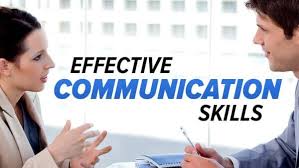
Effective communication skills: Key Strategies for Success
Effective communication skills is the cornerstone of human interaction. It’s the tool that connects us, allows us to understand one another, and builds the foundation for meaningful relationships. Whether in the workplace, within families, or among friends, effective communication is the catalyst for success and harmony.
Understandings:
At its core, effective communication isn’t just about speaking; it’s about conveying messages clearly and comprehensively while also being a keen listener. It involves verbal, non-verbal, and written forms of expression, all working together harmoniously.
Why Is Effective Communication Essential?
- Building Relationships: It forms the bedrock of any relationship, fostering understanding, trust, and empathy.
- Enhancing Collaboration: In professional settings, effective communication fuels teamwork, leading to higher productivity and innovation.
- Conflict Resolution: It’s the key to resolving conflicts and misunderstandings, averting potential crises.
- Personal Growth: Mastering communication skills enhances personal development, boosting self-confidence and empathy.
Strategies:
1. Active Listening
Listening isn’t just about hearing words; it’s about understanding the message, both verbal and non-verbal. Practice active listening by giving your full attention, maintaining eye contact, and being open-minded.
2. Clarity and Conciseness
Ensure your message is clear and concise. Avoid jargon and unnecessary details that might confuse your audience. Organize your thoughts before communicating to avoid rambling.
3. Empathy and Understanding
Empathy is the ability to understand and share the feelings of another. Acknowledge the emotions behind the words, and respond with understanding and kindness.
4. Non-Verbal Communication
Remember, it’s not just what you say; it’s how you say it. Pay attention to body language, facial expressions, and tone of voice. They often convey more than words alone.
5. Feedback and Clarification
Encourage open feedback and seek clarification if something isn’t clear. This ensures that both parties are on the same page, avoiding misunderstandings.
6. Adaptability
Different situations demand different communication styles. Adapt your approach based on the context, the audience, and the medium of communication.
Improving Communication Skills
- Practice: Engage in conversations regularly, both in-person and virtually, to hone your communication skills.
- Seek Feedback: Ask for constructive feedback from peers or mentors to identify areas of improvement.
- Continuous Learning: Attend workshops, read books, or take courses on effective communication to refine your skills.
Conclusion
Effective communication is not a one-size-fits-all skill. It’s a dynamic process that requires constant effort and adaptation. By embracing active listening, clarity, empathy, and continuous improvement, anyone can master the art of effective communication, transforming relationships, careers, and personal growth.
Remember, effective communication isn’t just a skill; it’s a superpower that can elevate every aspect of your life.
Creating a blog post like this could be a great way to delve into the nuances of effective communication, offering guidance and actionable tips for readers looking to enhance their communication skills.
Regenerate

